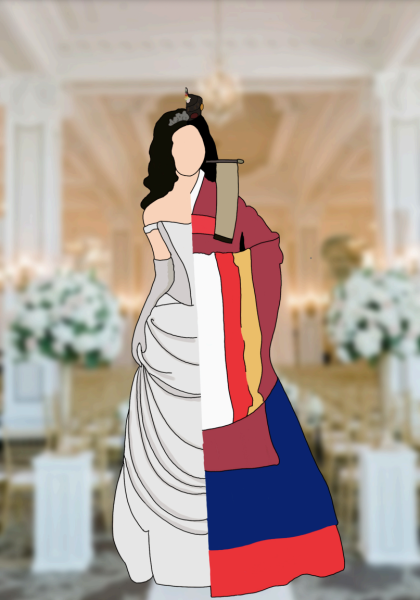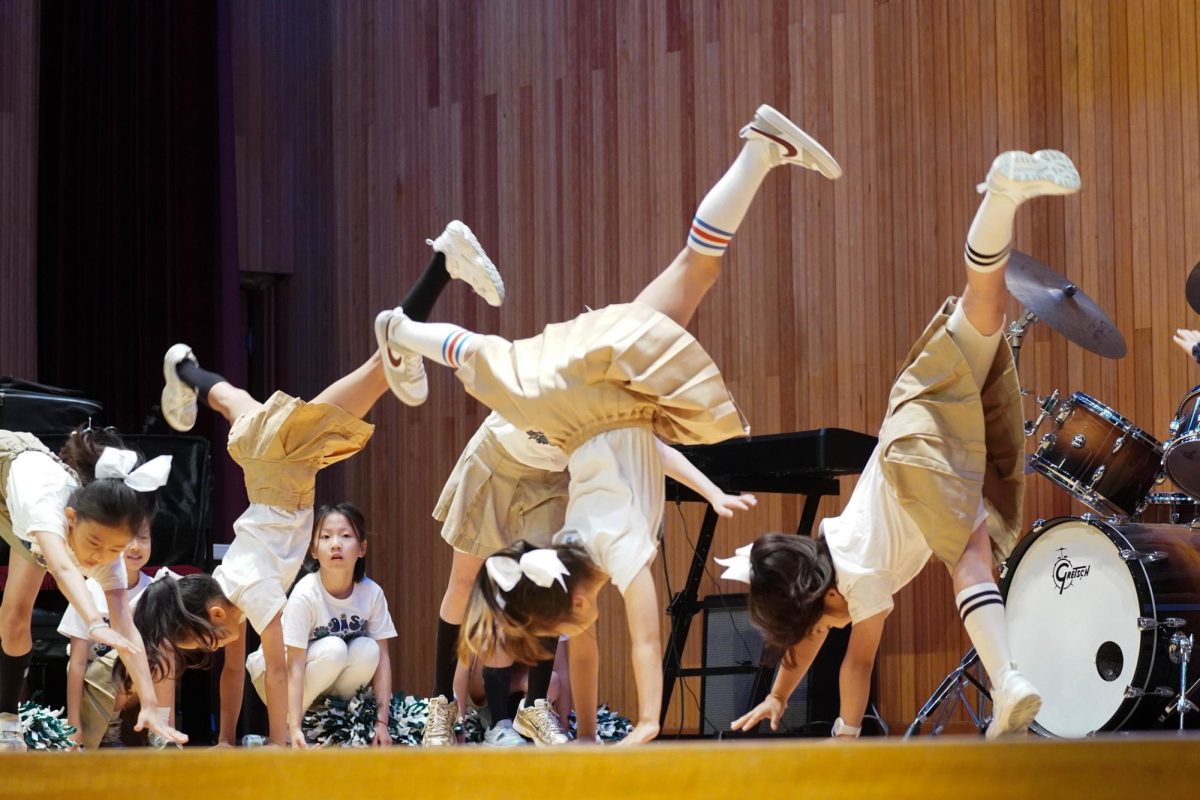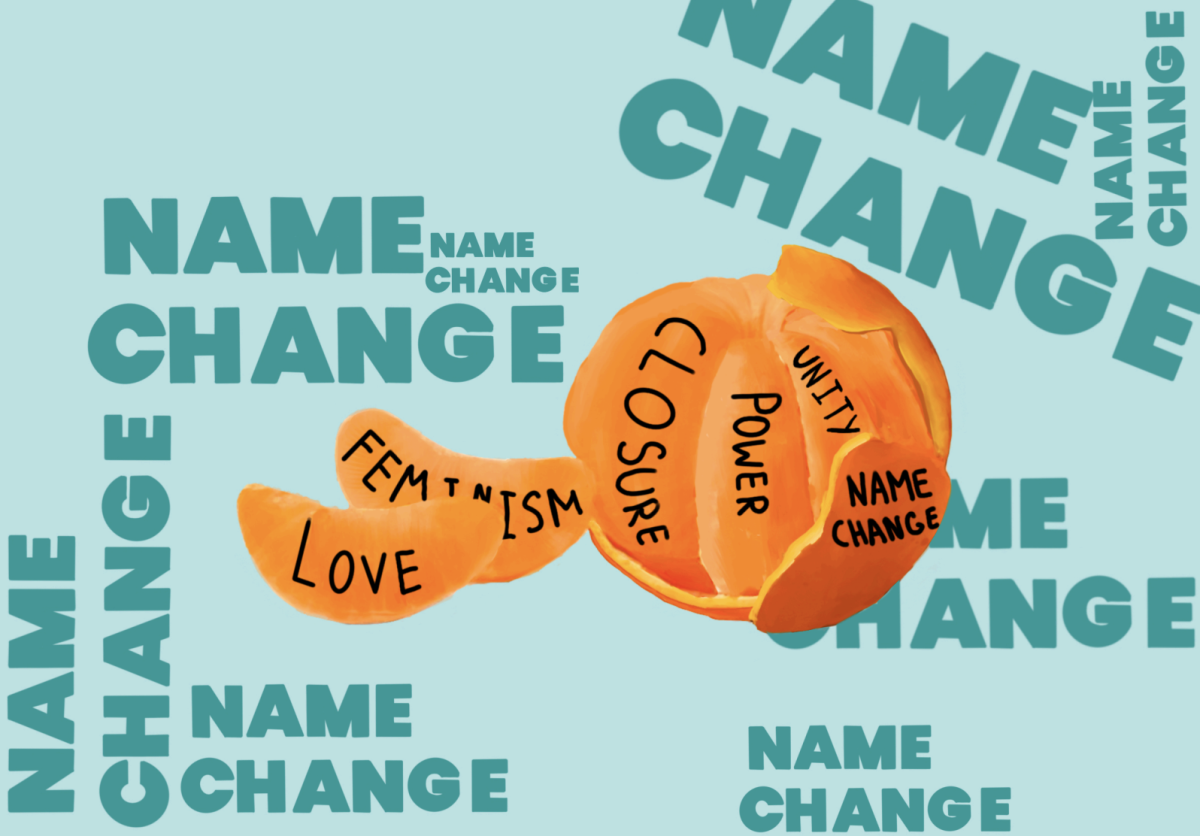A couple makes a heartfelt vow at the altar, and the pair are united not only by love, but by title. Amid the smiles and cheers, an identity takes center stage: the bride, once known as Ms., transforms into Mrs. as she embraces her husband’s family name. In the United States, 70% of wives change their surname to their spouse’s, while 90% of women do the same in Britain.
On the flip side, wives in Korea do not traditionally take their husbands’ last names after marriage. Children conventionally inherit their last moniker from their paternal lineage, but South Korean women retain their surname and do not have the concept of a “maiden name.”
However, despite the various traditions upheld by time and legacies, some individuals today choose different routes that suit their own lives.

A unique anomaly within the K-equation, third-grade teacher Mrs. Kim reintroduced herself as Mrs. Ryu this year. Her choice is embedded within an intricate web of her childhood and upbringing, familial unity, and visions of her future.
Mrs. Ryu said, “My husband and I have always considered matching our last names because I grew up in the States where it is common for couples to have the same last name, and we are considering moving back abroad in several years.” She added that the title change acted as the cherry on top of her marriage, and made her feel more officially married.
Though her identity only changed nominally, she expressed that because people call her by a different name, she feels as if she was reborn. She realized that words hold an unseen power that can completely change people’s lives. For Mrs. Ryu, the switch from Kim to Ryu further united her newfound family.
From a different angle, second-grade teacher Ms. Prestia is an outlier among her American friends as she took after South Korean culture and kept her maiden surname.
She said, “Part of the reason is that my husband’s Korean. So I wanted to follow the Korean way. The other thing was that when I was reading how I can change my name, it sounded really complicated.” She explained how she would have to travel to the States to officially make the change, which was not in her plans for the near future.
Ms. Prestia additionally mentioned her long history at DIS as ‘Ms. Prestia’, and described how her entire professional life is built around her maiden name. She laughed and said, “When I told my second graders last year that I might be Mrs. Lee, they all screamed, ‘No, you’re only Miss Prestia,’’ so their reaction also made me want to keep my name.”
Ms. Prestia jokingly shared how her father, in contrast, was a little disappointed that she passed up the opportunity to be named Sarah Lee, like the well-known American dessert brand.
Many, like Mrs. Ryu and Ms. Prestia, make this choice for personal reasons that enhance relationships. Others approach the action differently and project their beliefs and societal values through name change.
Until a few weeks ago, Elaine Ding, a current student at Yale University, was known as Elaine Cheng among her friends. Her switch results from an internal torrent of deep questions about female representation.
In a conversation with her mother, Ding came to a realization that despite her mother’s initial belief that the feminist agenda is complete, surnames serve as a clear remnant of patriarchy in society that we use daily. She said, “The word for last name is literally translated to ‘born of a woman’ in Chinese. How ironic is that?” After much deliberation, Ding made the decision to honor her matriarchal ancestry.
Ding said, “We can have a matriarchal society within just one generation. Sometimes a revolution doesn’t come through big things, but rather small steps that are apparent. And sometimes people think it’s too apparent. But really, it’s something quite powerful.”
Although Mrs. Ryu, Ms. Prestia and Ding all espouse completely different reasons, they ultimately agree on one crucial point: do what is best for you and your situation.
Mrs. Ryu said, “If you’re considering a name change, either for your first name or last name, it is not an easy deal. There’s a lot of paperwork, and you are going to be called that name for a while– hopefully forever. So, consider it seriously. But as long as you have good intentions and good reasons, and you feel confident about it, you will be fine.”
“Change your name because you want to,” Ding said. “No one else should have a say in that decision unless you want them to. Find what’s right for you and always keep yourself safe.”


















































Violet • Oct 6, 2024 at 7:55 am
Do we need to call Ms.Medina Mrs.Purdy then?